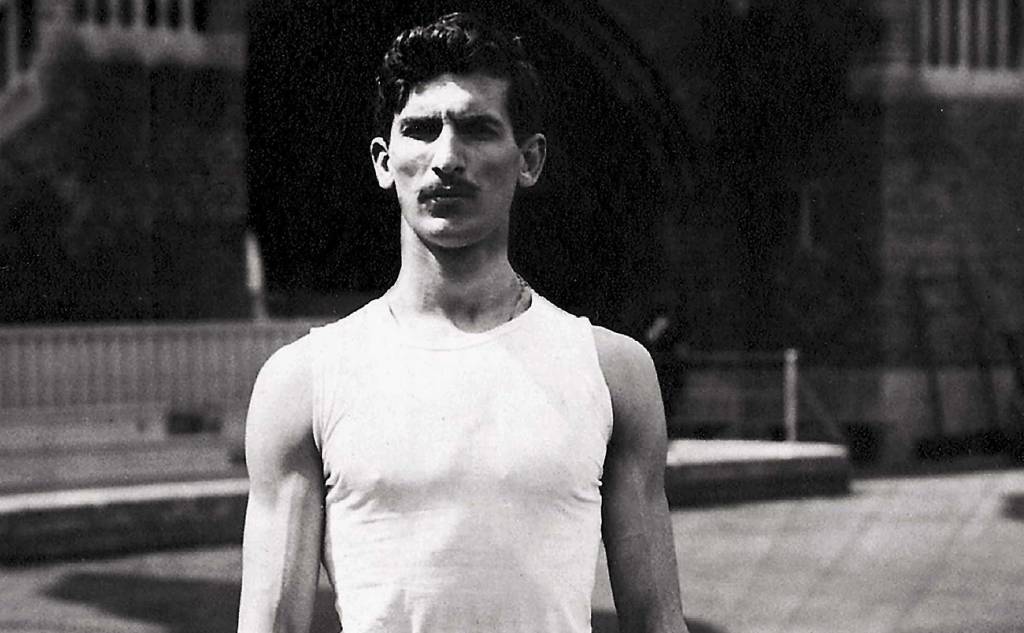Konstantinos Tsiklitiras - Olympic Games Champion

THE "HERO" OLYMPIC GAMES CHAMPION
He was born in Pylos Messinia on October 30th, 1888 and died in Athens on February
10th, 1913. He was a Greek athlete and soccer player, twenty times the first Pan-
Hellenic athlete of five different sports in just six years. He studied accounting, while his
father Heracles, a physician in the profession (1852-1919), was mayor of the greater
Pylos area for many years.
In 1906 he became an athlete of the Panhellenic Gymnastics Association, and also
played as a goalkeeper for the Athens Football Club (RFO), which in 1924 was renamed to Panathinaikos Athletic Club (PAO). Tsiklitiras won two medals in two consecutive Olympic Games. Indeed, the gold medal of 1912 in Stockholm was a milestone in Greek Olympic history, since it was repeated in the track 80 years later (in 1992 by Voula Patoulidou). Specifically, at the 1912 Olympic Games in Stockholm, during which he was the flag bearer of the Greek expedition, on July 8th he won the gold medal in the long jump, 3.37 meters, and the bronze in the high jump, 1.55 meters. Returning to Athens, he was welcomed by thousands of people, and the Panhellenic Gymnastics
Association gave him a golden watch with the date of his victory written on it.
Two months after the triumph of Stockholm, the First Balkan War broke out on October 4th, 1912, and Tsiklitiras was enlisted. He was offered to stay at the Athens Guard, but he refused. He wanted to go to the front line of the battle in order not to be accused of favoritism. Even Benakis, who had been a family friend, had suggested that he should work in his Egyptian business to keep him out of the war. Unfortunately, he was first diagnosed with meningitis there, at the front line, and died in 1913 at the age of just 25. He was buried in the First Cemetery of Patras and on the grave, the five circles, the emblem of the Olympic Games were placed.
Tsiklitiria Field Events
In 1963, at the Panathenaic Stadium, the Panhellenic Gymnastics Association established the annual track and field events. The Tsiklitiria Events have gained international attention due to the participation of athletes from the Valkans and the rest of Europe.
Finally, in 1981, a bronze statue of the athlete was erected in a dominant position at the port of Pylos.



